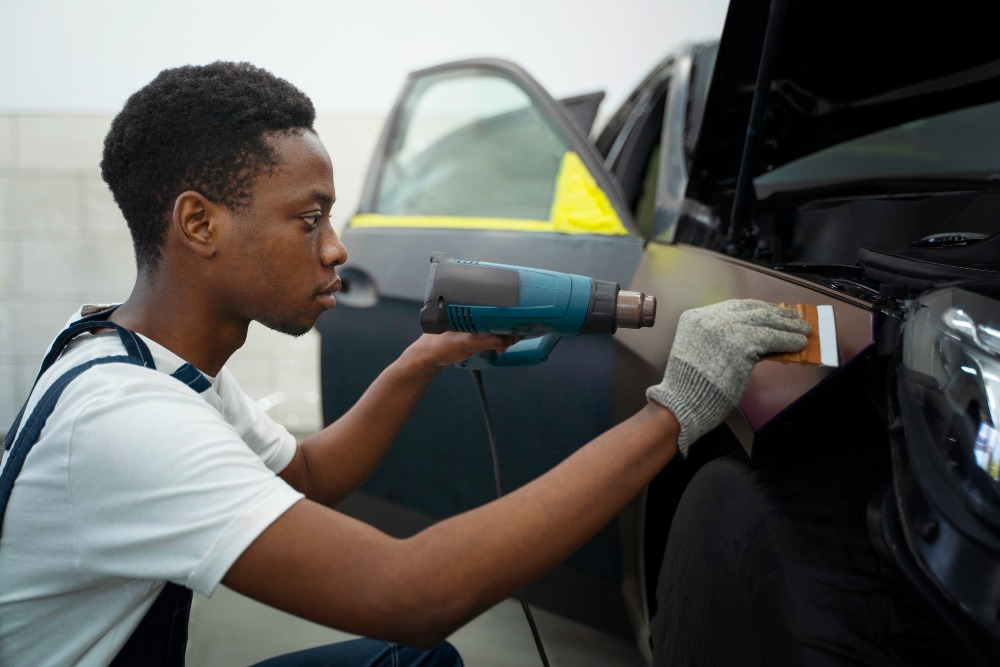Owning a car is a long-term investment that requires proper care to ensure safety and durability. Routine maintenance not only keeps your vehicle running smoothly but also prevents expensive repairs and increases its resale value. In this guide, we will explore essential tips to help you maintain your car for years to come.
1. Regular Oil Changes and Fluid Checks
One of the most crucial aspects of car maintenance is changing the engine oil regularly. Clean oil lubricates the engine, preventing excessive wear and tear. Depending on your car model and driving habits, oil should be changed every 3,000 to 7,500 miles. Additionally, other fluids like coolant, brake fluid, transmission fluid, and windshield washer fluid should be checked and topped up as needed.
Ignoring fluid levels can lead to overheating, brake failure, or transmission issues, all of which can result in costly repairs. Regularly inspecting these fluids helps keep your car in peak condition and ensures optimal performance on the road.
2. Tire Care and Proper Inflation
Tires play a vital role in vehicle safety and fuel efficiency. Keeping them properly inflated prevents uneven wear and improves fuel economy. Check your tire pressure at least once a month using a pressure gauge and adjust it according to the manufacturer’s recommendations.
Additionally, tire rotation every 5,000 to 7,500 miles helps distribute wear evenly, extending their lifespan. Don’t forget to inspect the tread depth to ensure proper traction, especially in wet or snowy conditions. If your tires are worn out or damaged, replacing them promptly is crucial for road safety.
3. Brake System Maintenance
Your car’s braking system is essential for your safety. Brake pads and rotors wear down over time and require periodic inspection. If you hear squeaking or grinding noises, or if your braking performance declines, it may be time to replace the brake pads.
Regularly check the brake fluid level and ensure there are no leaks. Delayed maintenance of the braking system can lead to accidents, so it’s best to have a professional inspect your brakes at least once a year.
4. Battery Maintenance and Electrical System Check
A well-maintained battery ensures your car starts smoothly every time. Check the battery terminals for corrosion and clean them if necessary. Most car batteries last between three and five years, so replacing an old battery before it fails is a good preventive measure.
Additionally, ensure your alternator and starter are functioning correctly. If you notice dimming headlights, slow engine cranking, or dashboard warning lights, have your electrical system inspected to avoid unexpected breakdowns.
5. Keeping Your Car Clean and Rust-Free

Regular washing and waxing protect your car’s paint and prevent rust formation. Dirt, road salt, and pollutants can cause corrosion over time, especially in areas with high humidity or harsh winters.
Cleaning the interior also improves driving comfort and maintains the vehicle’s value. Vacuum the carpets, wipe down surfaces, and use protective treatments for leather or fabric seats to keep your car looking new.
6. Inspecting Belts and Hoses
Belts and hoses play a significant role in engine performance. Over time, they can crack, fray, or become brittle. Inspect them periodically for any signs of wear and replace them as needed.
A broken serpentine belt can disable essential functions like power steering and air conditioning, while a damaged radiator hose can lead to overheating. Regular checks help prevent sudden breakdowns and costly repairs.
7. Regular Tune-Ups and Engine Inspections
Modern cars require periodic tune-ups to ensure optimal fuel efficiency and engine performance. During a tune-up, spark plugs, air filters, and ignition components are inspected and replaced if necessary.
A well-maintained engine not only improves fuel economy but also reduces emissions, benefiting both your wallet and the environment. Consult your owner’s manual for recommended service intervals.
8. Pay Attention to Warning Lights
Dashboard warning lights indicate potential issues with your car. Ignoring them can lead to serious mechanical problems. If your check engine light, ABS warning, or oil pressure light turns on, have your vehicle diagnosed by a professional immediately.
Early detection and repair can prevent minor issues from escalating into expensive repairs, ensuring your car remains reliable and safe.
9. Drive Responsibly and Avoid Aggressive Driving
How you drive affects your car’s longevity. Sudden acceleration, hard braking, and excessive speeding can put unnecessary stress on the engine, brakes, and suspension components.
Practicing smooth acceleration and braking, following speed limits, and avoiding potholes or rough terrain can extend your car’s lifespan. Defensive driving also minimizes the risk of accidents and enhances fuel efficiency.
10. Schedule Regular Professional Inspections
Even with routine maintenance, having a certified mechanic inspect your car periodically is essential. A professional can identify potential issues that may not be visible to the average car owner.
Annual inspections ensure your vehicle meets safety standards and performs optimally. It’s a small investment that can save you from unexpected breakdowns and costly repairs.
Final Thoughts
Proper car maintenance is the key to safety, longevity, and optimal performance. By following these essential tips, you can avoid costly repairs, enhance fuel efficiency, and keep your car in excellent condition for years. Regular checkups, responsible driving, and timely repairs go a long way in preserving the value of your vehicle and ensuring a smooth driving experience. Start implementing these practices today, and your car will thank you in the long run!

